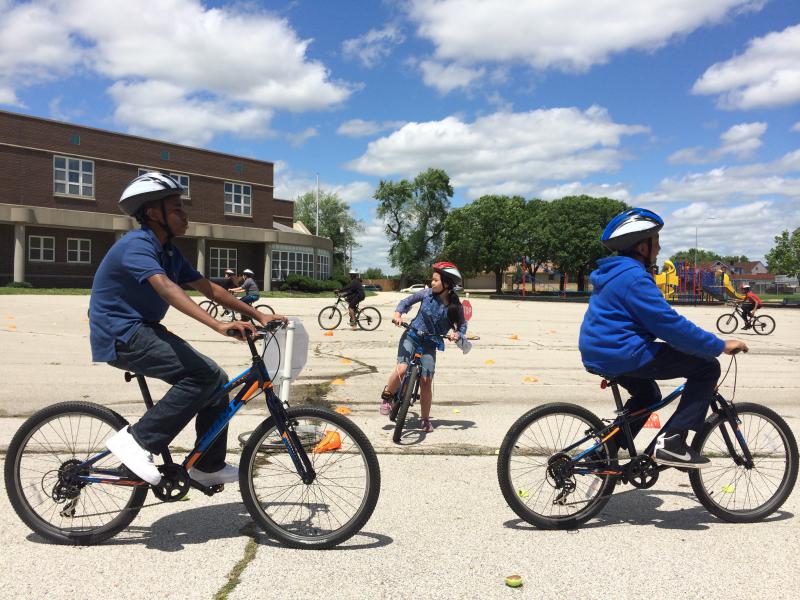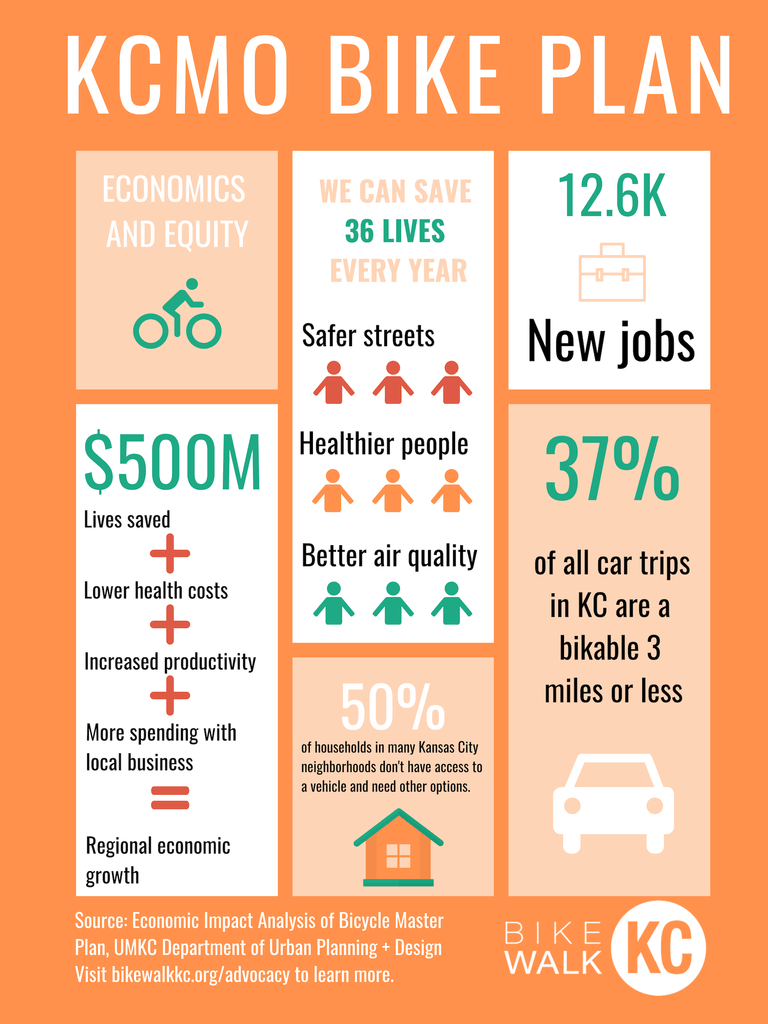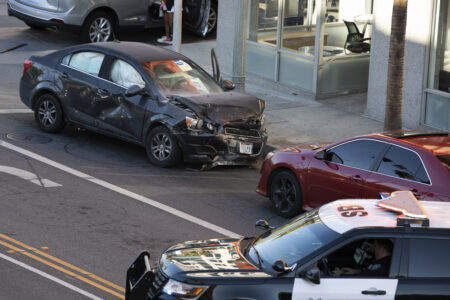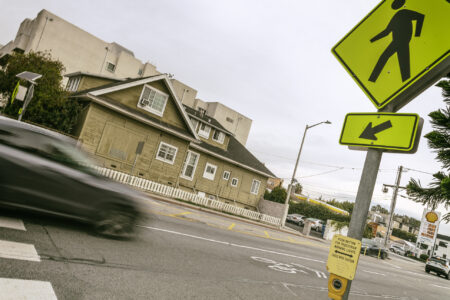
Share On Social!
Improving safe routes for people to bike can help cities reach their health, equity, economic, and climate change goals.
Kansas City, Missouri (10.2% Latino), for example, can save 36 lives every year and increase local spending by $500 million if the city fully implements its bike plan over the next two decades, according to a new study from the University of Missouri Kansas City’s Department of Architecture, Urban Planning, and Design.
Commissioned by Bike Walk Kansas City, researchers analyzed various social and economic benefits of the Kansas City Bicycle Master Plan.
“This research confirms how essential a quality bike network is to so many city goals: safety, health, economic opportunity, and fiscal sustainability,” Bike Walk KC’s Director of Community Planning, Thomas Morefield, said in a statement. “These are benefits for the entire community, not just those who bike. We can only realize these benefits if we implement the plan, so the hard work is just beginning.”
Concerns in Kansas City
In the Kansas City area, 37% of trips are short enough to bike — under 2.91 miles.
However, dangerous streets prevent many people from using this mode of transit.
Six in 10 residents are interested in bicycling for transportation and recreation, but have safety concerns that prevent them from doing so, according to the Bike KC Master Plan.
Lack of safe routes is particularly burdensome for those who do not have access to a car.
For someone on Missouri’s minimum wage, the estimated $9000 annual cost to own a car is half of their income.
Moreover, transportation is the top sources of greenhouse gas emissions in Kansas City, contributing to asthma-related emergency department visits, hospitalizations, and death, as well as climate change.
Bike lanes aren’t the only solution. That’s why advocates also push for transit.
“Kansas City has significant needs, significant transit needs,” Patrick Tuohey, the Show Me Institute’s director of municipal policy told KSHB 41.
Findings
A complete, connected bike network would calm streets, reduce traffic crashes, reduce emissions, improve air quality, and increase physical activity, resulting in:
• 15 lives saved by a 47% reduction in fatal crashes
• 15 lives saved by getting Kansas Citians more active and healthier
• Six lives saved by improving air quality
• 200,000 fewer tons of CO2 per year
 Shockingly, local businesses would benefit from $500 million in increased local spending, creating 12,600 new jobs.
Shockingly, local businesses would benefit from $500 million in increased local spending, creating 12,600 new jobs.
“This economic growth is due to increased traffic safety, increased physical activity, increased labor productivity, decreases in air pollution and more local consumption due to reduced overall spending on auto-based transportation,” researchers state in their Economic Impact Analysis.
Beyond safety, health, and environmental benefits, building safe bike lanes is good for business.
Share this with bike safety advocates and business leaders in your community.
By The Numbers
27
percent
of Latinos rely on public transit (compared to 14% of whites).



